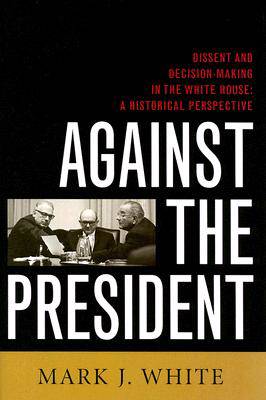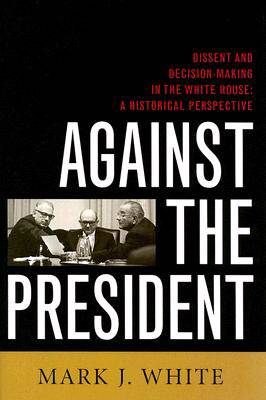
- Afhalen na 1 uur in een winkel met voorraad
- Gratis thuislevering in België vanaf € 30
- Ruim aanbod met 7 miljoen producten
- Afhalen na 1 uur in een winkel met voorraad
- Gratis thuislevering in België vanaf € 30
- Ruim aanbod met 7 miljoen producten
Zoeken
Against the President
Dissent and Decision-Making in the White House: A Historical Perspective
Mark J White
Hardcover | Engels
€ 30,95
+ 61 punten
Omschrijving
With the Iraq War now in its fourth year, its merits are still contested by leading politicians in the U.S. and elsewhere. And revelations suggest that the president's secretary of state, Colin Powell, had opposed going to war. Historians have often analyzed the relationship between presidents and their advisors, but rarely the influence of those counselors who have dissented from the views of the chief executive. Mark J. White considers the question of alternative policies by examining the response of presidents, from Harry Truman to Lyndon Johnson, to dissent within their own. Mr. White fashions a provocative interpretation of America's role in the cold war and questions about the potential effectiveness of policies that might have been.
Specificaties
Betrokkenen
- Auteur(s):
- Uitgeverij:
Inhoud
- Aantal bladzijden:
- 384
- Taal:
- Engels
Eigenschappen
- Productcode (EAN):
- 9781566637442
- Verschijningsdatum:
- 19/10/2007
- Uitvoering:
- Hardcover
- Formaat:
- Genaaid
- Afmetingen:
- 163 mm x 232 mm
- Gewicht:
- 707 g

Alleen bij Standaard Boekhandel
+ 61 punten op je klantenkaart van Standaard Boekhandel
Beoordelingen
We publiceren alleen reviews die voldoen aan de voorwaarden voor reviews. Bekijk onze voorwaarden voor reviews.











